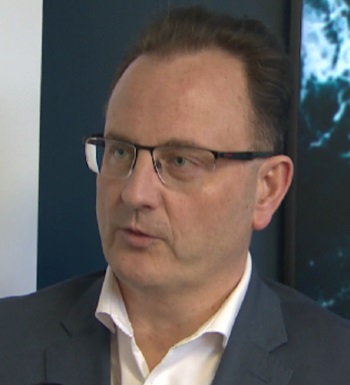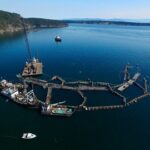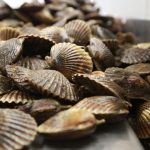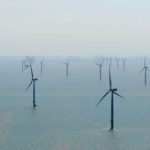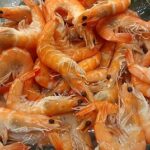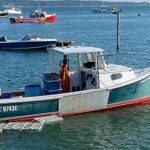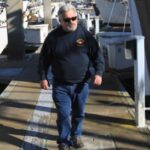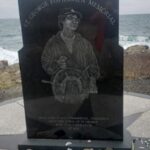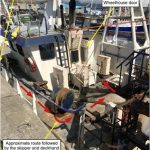Tag Archives: Newfoundland and Labrador
Head of seafood processors’ association says he faced threats over crab dispute
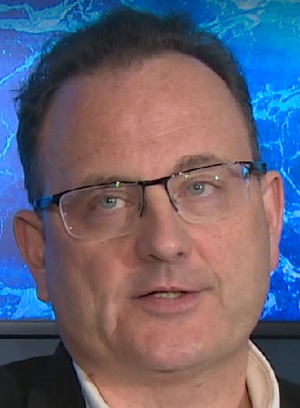 The head of the Association of Seafood Producers says he and his family faced threats in recent weeks during the conflict over snow crab. “There has been threats against me for the last 30 days, and I have been in regular contact with the [Royal Newfoundland Constabulary],” ASP executive director Jeff Loder told Radio-Canada Tuesday. “They were directed toward my personal safety, directed towards my credibility, directed towards our members, directed towards our office. And it was really, really inappropriate. I understand this is an emotional time, I understand that this is about people’s livelihoods. This is a serious issue…. However, making threats is entirely unacceptable.” more, >>CLICK TO READ<< 16:48
The head of the Association of Seafood Producers says he and his family faced threats in recent weeks during the conflict over snow crab. “There has been threats against me for the last 30 days, and I have been in regular contact with the [Royal Newfoundland Constabulary],” ASP executive director Jeff Loder told Radio-Canada Tuesday. “They were directed toward my personal safety, directed towards my credibility, directed towards our members, directed towards our office. And it was really, really inappropriate. I understand this is an emotional time, I understand that this is about people’s livelihoods. This is a serious issue…. However, making threats is entirely unacceptable.” more, >>CLICK TO READ<< 16:48
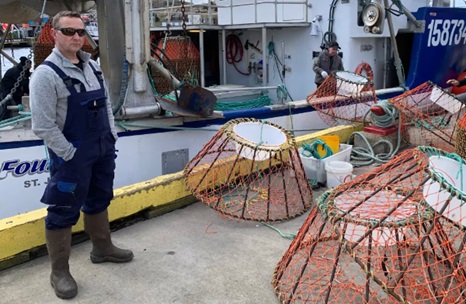
FFAW applauds new deal on crab pricing, but says system still needs fixing
Harvesters refused to fish for more than a week, until the FFAW and Association of Seafood Producers reached a deal on Sunday that included increases to minimum prices and a settlement at the end of the season. That deal will override the panel’s decision. The deal struck Sunday includes a floor price of $3 per pound for the entire 2024 season. Both sides will be able to file for a reconsideration if the market price goes above $6.50 US. Harvester Glen Winslow was getting ready to finally start his season Monday morning in St. John’s. He said it’ll likely be a few days before boats head for the crab grounds. “I’m quite satisfied with where we got, to be honest with you,” Winslow told Radio-Canada. Photos, more, >>click to read<< 06:11
BREAKING: FFAW AND ASP REACH AGREEMENT TO GET SNOW CRAB FISHERY STARTED
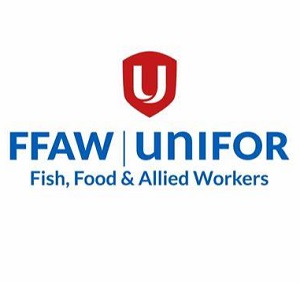 This evening, the Association of Seafood Producers (ASP) reached an agreement with the FFAW Snow Crab Bargaining Committee, ensuring the start of the 2024 snow crab fishery. As a result, plans for a demonstration tomorrow are now cancelled. “This is an historic pricing agreement for harvesters in our province, restoring fairness in the crab fishery and giving harvesters a sharing arrangement they have not seen in a long time. We’re very pleased about the progress made here today and thank Premier Furey for ensuring the fishery gets off the ground as quickly as possible for the benefit of all those involved,” says FFAW-Unifor President Greg Pretty. “I also want to extend my sincere thanks to all members of our Bargaining Committee, who stood strong throughout this process and ensured that harvesters in our province would not be shortchanged their fair share,” he says. more, >>click to read<< 18:09
This evening, the Association of Seafood Producers (ASP) reached an agreement with the FFAW Snow Crab Bargaining Committee, ensuring the start of the 2024 snow crab fishery. As a result, plans for a demonstration tomorrow are now cancelled. “This is an historic pricing agreement for harvesters in our province, restoring fairness in the crab fishery and giving harvesters a sharing arrangement they have not seen in a long time. We’re very pleased about the progress made here today and thank Premier Furey for ensuring the fishery gets off the ground as quickly as possible for the benefit of all those involved,” says FFAW-Unifor President Greg Pretty. “I also want to extend my sincere thanks to all members of our Bargaining Committee, who stood strong throughout this process and ensured that harvesters in our province would not be shortchanged their fair share,” he says. more, >>click to read<< 18:09
Allowing Outside Buyers in Fishery Won’t Fix Issues in Processing Sector, Says Advocate
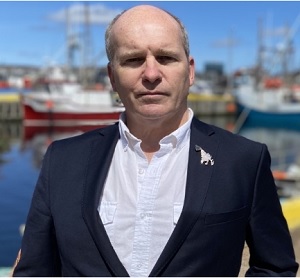 A longtime advocate for the inshore fishery says measures taken by the provincial government won’t do anything to break what he calls the “cartel” running the local processing sector. Harvesters are vowing to return to Confederation Building on Monday to rally for changes that will give them a greater share of the price fetched by crab and other species. The province is now allowing outside buyers to purchase product from harvesters, but Ryan Cleary told VOCM Open Line with Paddy Daly that doesn’t go far enough. more, >>click to read<< 10:44
A longtime advocate for the inshore fishery says measures taken by the provincial government won’t do anything to break what he calls the “cartel” running the local processing sector. Harvesters are vowing to return to Confederation Building on Monday to rally for changes that will give them a greater share of the price fetched by crab and other species. The province is now allowing outside buyers to purchase product from harvesters, but Ryan Cleary told VOCM Open Line with Paddy Daly that doesn’t go far enough. more, >>click to read<< 10:44
Crab harvesters heading back to Confederation Building on Monday morning, Efford says
 John Efford, the unofficial leader of a fisheries union protest that has gripped Newfoundland and Labrador’s seafood industry, says crab harvesters will be back to protesting on Monday morning. In a Facebook post on Thursday evening, Efford called on harvesters to meet outside Confederation Building at 7 a.m. NT on Monday to protest for a better deal to start the lucrative snow crab season, along with other demands. Efford called on harvesters from all over the province to head to St. John’s to begin protests. The main crux of the protest relates to the ongoing dispute over the crab season. The FFAW and the Association of Seafood Producers (ASP) have exchanged barbs in recent days, accusing each other of spreading misinformation. more, >>click to read<< 12:35
John Efford, the unofficial leader of a fisheries union protest that has gripped Newfoundland and Labrador’s seafood industry, says crab harvesters will be back to protesting on Monday morning. In a Facebook post on Thursday evening, Efford called on harvesters to meet outside Confederation Building at 7 a.m. NT on Monday to protest for a better deal to start the lucrative snow crab season, along with other demands. Efford called on harvesters from all over the province to head to St. John’s to begin protests. The main crux of the protest relates to the ongoing dispute over the crab season. The FFAW and the Association of Seafood Producers (ASP) have exchanged barbs in recent days, accusing each other of spreading misinformation. more, >>click to read<< 12:35
ASP attempts to post price to break ranks, Commitee turns down offer that further erodes harvester share
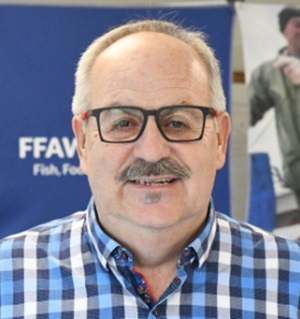 Companies continue to spread misinformation in an effort to cause controversy and mistrust between fellow harvesters. “Today, ASP relayed a verbal offer via our Mediator and before our Committee was event able to convene, plants began to advise harvesters that a price had been set for them to go fishing. This is the equivalent of posting a price without a collective agreement. And it’s completely, unequivocally, unacceptable,” says FFAW-Unifor President Greg Pretty. “Harvesters are advised not to fish until an agreement is signed, and the only source that will come from is the Union’s official channels,” Pretty says. more, >>click to read<< 06:43
Companies continue to spread misinformation in an effort to cause controversy and mistrust between fellow harvesters. “Today, ASP relayed a verbal offer via our Mediator and before our Committee was event able to convene, plants began to advise harvesters that a price had been set for them to go fishing. This is the equivalent of posting a price without a collective agreement. And it’s completely, unequivocally, unacceptable,” says FFAW-Unifor President Greg Pretty. “Harvesters are advised not to fish until an agreement is signed, and the only source that will come from is the Union’s official channels,” Pretty says. more, >>click to read<< 06:43
Accusing union of refusing all offers, ASP warns crab tie-up will soon have an economic whammy
 Association of Seafood Producers executive director Jeff Loder says the current crab tie-up is getting to a point where it is going to negatively affect the market for the rest of the season — and other fisheries after that. It’s been nearly a week since the snow crab season was scheduled to begin. Fish harvesters have tied up their boats, however, refusing to fish under the pricing formula that an independent panel set just before the start of the season. Loder said it’s lining up to be a repeat of last season, in which harvesters tied up their boats for six weeks. “We are now reaching the point where [we] were to last year where there will be negative implications if the crab fishery does not start,” he told reporters Thursday. Video, more, >>click to read<< 17:43
Association of Seafood Producers executive director Jeff Loder says the current crab tie-up is getting to a point where it is going to negatively affect the market for the rest of the season — and other fisheries after that. It’s been nearly a week since the snow crab season was scheduled to begin. Fish harvesters have tied up their boats, however, refusing to fish under the pricing formula that an independent panel set just before the start of the season. Loder said it’s lining up to be a repeat of last season, in which harvesters tied up their boats for six weeks. “We are now reaching the point where [we] were to last year where there will be negative implications if the crab fishery does not start,” he told reporters Thursday. Video, more, >>click to read<< 17:43
Project Nujio’qonik: In megaproject-weary Newfoundland, a massive hydrogen operation has some on edge
 A multibillion-dollar megaproject in Newfoundland is one step closer to becoming Canada’s first commercial green hydrogen operation, but some in the country’s easternmost province wonder whether their government has learned from its mistakes. The first two phases of development would involve windfarms of at least 150 turbines built on Newfoundland’s Port au Port Peninsula and in the nearby Codroy Valley, on the island’s west coast. Those turbines would power a hydrogen and ammonia production plant, to be built in Stephenville, N.L., located about 145 kilometres northeast of Codroy. The experimental project would exploit a massive rural area of Newfoundland as a testing ground for the benefit of a private company, said Nick Mercer, an assistant environmental science professor at the University of Prince Edward Island. more, >>click to read<< 06:50
A multibillion-dollar megaproject in Newfoundland is one step closer to becoming Canada’s first commercial green hydrogen operation, but some in the country’s easternmost province wonder whether their government has learned from its mistakes. The first two phases of development would involve windfarms of at least 150 turbines built on Newfoundland’s Port au Port Peninsula and in the nearby Codroy Valley, on the island’s west coast. Those turbines would power a hydrogen and ammonia production plant, to be built in Stephenville, N.L., located about 145 kilometres northeast of Codroy. The experimental project would exploit a massive rural area of Newfoundland as a testing ground for the benefit of a private company, said Nick Mercer, an assistant environmental science professor at the University of Prince Edward Island. more, >>click to read<< 06:50
Crab harvesters’ union calls for price formula set out in past provincial report
 With their boats tied up and crab pots still on dry land, fish harvesters and union officials are calling on the Newfoundland and Labrador government to revisit a 2023 report that sets out what they say is a fair way forward for the snow crab fishery. At a news conference in St. John’s on Wednesday, Fish, Food & Allied Workers union president Greg Pretty pointed to a report last year from the province’s fish price-setting strategic review team, chaired by Glenn Blackwood. Pretty says the pricing formula set out in that report, which followed a six-week tie-up last season, would give harvesters a fair market share. Glen Winslow, a St. John’s harvester who was part of the bargaining committee, says the formula set out in Blackwood’s report would have allowed for a larger share for harvesters if the markets had performed better. “The Blackwood formula would have fixed all our problems, but it was thrown out at the last minute.” Video, more, >>click to read<< 18:24
With their boats tied up and crab pots still on dry land, fish harvesters and union officials are calling on the Newfoundland and Labrador government to revisit a 2023 report that sets out what they say is a fair way forward for the snow crab fishery. At a news conference in St. John’s on Wednesday, Fish, Food & Allied Workers union president Greg Pretty pointed to a report last year from the province’s fish price-setting strategic review team, chaired by Glenn Blackwood. Pretty says the pricing formula set out in that report, which followed a six-week tie-up last season, would give harvesters a fair market share. Glen Winslow, a St. John’s harvester who was part of the bargaining committee, says the formula set out in Blackwood’s report would have allowed for a larger share for harvesters if the markets had performed better. “The Blackwood formula would have fixed all our problems, but it was thrown out at the last minute.” Video, more, >>click to read<< 18:24
Crab Harvesters Demand Fair Share
 JOHN’S, NL – FFAW-Unifor is not surprised by provincial government’s decision to approve the World Energy GH2 project’s environmental assessment and ultimately green light the project. On February 28th, 2024, before the approval announcement by Minister Bernard Davis on April 9thand despite continued reassurance from World Energy GH2 that the project was entirely privately funded, the Government of Canada announced a $128 million-dollar federal loan to support the development. It was very clear from federal Minister Seamus O’Regan’s announcement on that date that there is significant political will, and a great sense of urgency, to move the project forward. FFAW met with Minister Davis twice in March to amplify the concerns of fish harvesters and the continuous aversion by World Energy to work collaboratively with FFAW-Unifor towards meaningful consultation. The harvesting sector is not being engaged as a major stakeholder nor as an industry that will inevitably be impacted, and this divergence is creating a great deal of frustration and mistrust for the project. more, >>click to read<< 14:35
JOHN’S, NL – FFAW-Unifor is not surprised by provincial government’s decision to approve the World Energy GH2 project’s environmental assessment and ultimately green light the project. On February 28th, 2024, before the approval announcement by Minister Bernard Davis on April 9thand despite continued reassurance from World Energy GH2 that the project was entirely privately funded, the Government of Canada announced a $128 million-dollar federal loan to support the development. It was very clear from federal Minister Seamus O’Regan’s announcement on that date that there is significant political will, and a great sense of urgency, to move the project forward. FFAW met with Minister Davis twice in March to amplify the concerns of fish harvesters and the continuous aversion by World Energy to work collaboratively with FFAW-Unifor towards meaningful consultation. The harvesting sector is not being engaged as a major stakeholder nor as an industry that will inevitably be impacted, and this divergence is creating a great deal of frustration and mistrust for the project. more, >>click to read<< 14:35
Crab tie-up means plant workers turn to income support, says Opposition critic
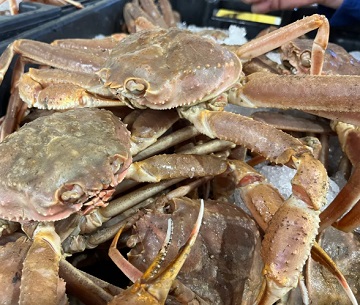 After weeks of protesting, including shutting down Confederation Building, fish harvesters scored big with concessions on who they could sell their catches to. The situation soured soon after, when the new crab price formula was revealed. Put forward by the Association for Seafood Producers, the floor price is set at $2.60 per pound and the harvester’s share is set at 37 per cent of market value above $8 per pound. Harvesters are refusing to go out on the water with the current formula. Bonavista MHA Craig Pardy called the situation unfortunate and said he’d hoped to avoid a repeat of last year, when there was a six-week delay to the start of the season. Pardy said he’s heard that more than 50 Bonavista plant workers have had their EI support elapse and are now without income. more, >>click to read<< 14:02
After weeks of protesting, including shutting down Confederation Building, fish harvesters scored big with concessions on who they could sell their catches to. The situation soured soon after, when the new crab price formula was revealed. Put forward by the Association for Seafood Producers, the floor price is set at $2.60 per pound and the harvester’s share is set at 37 per cent of market value above $8 per pound. Harvesters are refusing to go out on the water with the current formula. Bonavista MHA Craig Pardy called the situation unfortunate and said he’d hoped to avoid a repeat of last year, when there was a six-week delay to the start of the season. Pardy said he’s heard that more than 50 Bonavista plant workers have had their EI support elapse and are now without income. more, >>click to read<< 14:02
Newfoundland and Labrador: Crab Harvesters Demand Fair Share
 The crab fishing season officially started on Saturday, April 6th, yet all harvesters in Newfoundland and Labrador stayed tied up demanding their fair share. The Blackwood Report, commissioned by the province, demonstrated a fair-sharing arrangement for fish harvesters in Newfoundland and Labrador. Harvesters refuse to fish for any formula that undersells their slice of the pie. What are harvesters demanding: more, >>click to read<< 09:24
The crab fishing season officially started on Saturday, April 6th, yet all harvesters in Newfoundland and Labrador stayed tied up demanding their fair share. The Blackwood Report, commissioned by the province, demonstrated a fair-sharing arrangement for fish harvesters in Newfoundland and Labrador. Harvesters refuse to fish for any formula that undersells their slice of the pie. What are harvesters demanding: more, >>click to read<< 09:24
Crab harvesters refusing to fish under current pricing formula, union wants right to strike
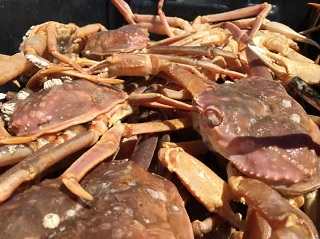 In a news release Tuesday night, the Fish, Food & Allied Workers said its members cannot fish under the price formula chosen by the province’s price-setting panel. That formula was put forward by the Association for Seafood Producers and sets a floor price of $2.60 per pound. The union held a meeting on Tuesday afternoon with more than 40 crab committee chairs from across the province, and said the message was clear. “Crab harvesters fully understand the importance of their business to their families and their communities. This injustice must be corrected, and we expect that harvesters will support leadership’s position to not fish,” FFAW president Greg Pretty said in the release. more, >>click to read<< 10:04
In a news release Tuesday night, the Fish, Food & Allied Workers said its members cannot fish under the price formula chosen by the province’s price-setting panel. That formula was put forward by the Association for Seafood Producers and sets a floor price of $2.60 per pound. The union held a meeting on Tuesday afternoon with more than 40 crab committee chairs from across the province, and said the message was clear. “Crab harvesters fully understand the importance of their business to their families and their communities. This injustice must be corrected, and we expect that harvesters will support leadership’s position to not fish,” FFAW president Greg Pretty said in the release. more, >>click to read<< 10:04
Crab harvesters will lose out on $30M because price-setting panel sided with processors, says Efford
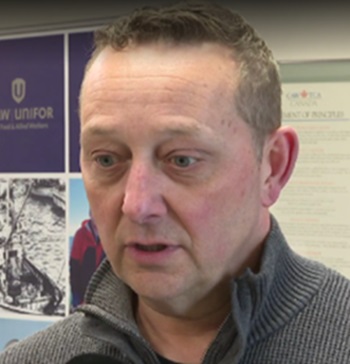 With the time-sensitive snow crab season set to begin in a few days, fish harvesters in Newfoundland and Labrador are once again talking about tying up their boats due to the price of crab. One vocal critic says the new decision will cost harvesters as much as $30 million from a lucrative fishery that has become the economic mainstay in the industry since the cod collapse of the early 1990s. The province’s price-setting panel sided with the Association of Seafood Producers on Monday evening, setting a price floor of $2.60 per pound with the ability go up as market factors change. John Efford, the Port de Grave fisherman who led protests throughout March, said when he heard the price setting panel had chosen the ASP formula his first reaction was one of disbelief. Photos, Video, more, >>click to read<< 16:35
With the time-sensitive snow crab season set to begin in a few days, fish harvesters in Newfoundland and Labrador are once again talking about tying up their boats due to the price of crab. One vocal critic says the new decision will cost harvesters as much as $30 million from a lucrative fishery that has become the economic mainstay in the industry since the cod collapse of the early 1990s. The province’s price-setting panel sided with the Association of Seafood Producers on Monday evening, setting a price floor of $2.60 per pound with the ability go up as market factors change. John Efford, the Port de Grave fisherman who led protests throughout March, said when he heard the price setting panel had chosen the ASP formula his first reaction was one of disbelief. Photos, Video, more, >>click to read<< 16:35
FFAW blasts price-setting panel after it sides with ASP on crab-pricing formula
 With the time-sensitive snow crab season set to begin in a few days, fish harvesters in Newfoundland and Labrador are once again talking about tying up their boats due to the price of crab. The province’s price-setting panel sided with the Association of Seafood Producers on Monday evening, setting a price floor of $2.60 per pound with the ability go up as market factors change. The panel rejected a formula proposed by the Food, Fish & Allied Workers union, which was closely tied to the formula suggested by an independent report at the end of last season. “There was a better way to do this,” said FFAW president Greg Pretty. “The work was already done by Glen Blackwood in his report. The Blackwood formula provided a way for harvesters to be paid a fair market share, but that was tossed aside for a formula that is not tied to information harvesters can trust.” more, >>click to read<< 11:26
With the time-sensitive snow crab season set to begin in a few days, fish harvesters in Newfoundland and Labrador are once again talking about tying up their boats due to the price of crab. The province’s price-setting panel sided with the Association of Seafood Producers on Monday evening, setting a price floor of $2.60 per pound with the ability go up as market factors change. The panel rejected a formula proposed by the Food, Fish & Allied Workers union, which was closely tied to the formula suggested by an independent report at the end of last season. “There was a better way to do this,” said FFAW president Greg Pretty. “The work was already done by Glen Blackwood in his report. The Blackwood formula provided a way for harvesters to be paid a fair market share, but that was tossed aside for a formula that is not tied to information harvesters can trust.” more, >>click to read<< 11:26
Panel Selects ASP Formula, Pulling Fair Market Share from Harvester Reach
 Minutes ago, the Standing Fish Price Setting Panel announced their decision for the 2024 snow crab season, siding with the Association of Seafood Producers formula. FFAW’s offer was based on the Blackwood report and would have seen harvesters capture a fair market value based on historic shares. ASP’s formula is not based on historic data, nor was justification found within their submission document. Moreover, there is no mechanism for harvesters to benefit as the market increases. ASP caps harvester share at 37% once the market reaches $8.02CAD, contrary to historic pricing shares that increases the harvester share as market prices increase. more, including 2024 Crab Fishery Decision, >>click to read<< 19:50
Minutes ago, the Standing Fish Price Setting Panel announced their decision for the 2024 snow crab season, siding with the Association of Seafood Producers formula. FFAW’s offer was based on the Blackwood report and would have seen harvesters capture a fair market value based on historic shares. ASP’s formula is not based on historic data, nor was justification found within their submission document. Moreover, there is no mechanism for harvesters to benefit as the market increases. ASP caps harvester share at 37% once the market reaches $8.02CAD, contrary to historic pricing shares that increases the harvester share as market prices increase. more, including 2024 Crab Fishery Decision, >>click to read<< 19:50
Union and Province Come to Agreement on ‘Free Enterprise’
 Today, the Provincial Government has released a letter detailing the provincial changes taking place to increase provincial processing capacity and give harvesters more opportunities to sell their catch. The agreement, which stemmed from protests held last month in St. John’s and around the province, responds to harvesters’ demands for free enterprise. “We are pleased with the amount of collaboration and consultation that has taken place to produce the letter from Minister Loveless today. The Minister took the concerns of harvesters seriously and has made tangible changes that will have positive impacts for fish harvesters all over the province,” says FFAW-Unifor President Greg Pretty. “Importantly, I want our plant worker members to know you are not forgotten about, and these changes are expected to have minimal-to-no impact on existing jobs,” Pretty says. more, >>click to read<< 16:19
Today, the Provincial Government has released a letter detailing the provincial changes taking place to increase provincial processing capacity and give harvesters more opportunities to sell their catch. The agreement, which stemmed from protests held last month in St. John’s and around the province, responds to harvesters’ demands for free enterprise. “We are pleased with the amount of collaboration and consultation that has taken place to produce the letter from Minister Loveless today. The Minister took the concerns of harvesters seriously and has made tangible changes that will have positive impacts for fish harvesters all over the province,” says FFAW-Unifor President Greg Pretty. “Importantly, I want our plant worker members to know you are not forgotten about, and these changes are expected to have minimal-to-no impact on existing jobs,” Pretty says. more, >>click to read<< 16:19
Northern cod remains in cautious zone, DFO says growth has stalled. FFAW critical of methodology
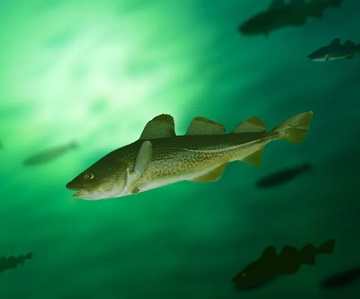 Scientists with the Department of Fisheries and Oceans Canada say the northern cod stock remains above the critical zone in Newfoundland and Labrador but hasn’t shown signs of growth since 2016. DFO released the findings of its latest stock assessment on Tuesday, showing levels are still in the cautious zone. Paul Regular, northern cod stock lead for DFO, said their findings suggest numbers haven’t changed much since 2016. The province’s fisheries union, meanwhile, is questioning the validity of DFO’s findings this year, given that some of the work was done earlier in the season than normal. Video, more, >>click to read<< 11:42
Scientists with the Department of Fisheries and Oceans Canada say the northern cod stock remains above the critical zone in Newfoundland and Labrador but hasn’t shown signs of growth since 2016. DFO released the findings of its latest stock assessment on Tuesday, showing levels are still in the cautious zone. Paul Regular, northern cod stock lead for DFO, said their findings suggest numbers haven’t changed much since 2016. The province’s fisheries union, meanwhile, is questioning the validity of DFO’s findings this year, given that some of the work was done earlier in the season than normal. Video, more, >>click to read<< 11:42
DFO delays opening of crab season by a week, staving off more fish harvester protests
 The federal government has agreed to push back the opening of the snow crab season, following a request from the fisheries union and a threat of more protests. The Department of Fisheries and Oceans made the announcement Monday evening, a day after the Fish, Food & Allied Workers union wrote to the department and asked for a one-week delay. Fish harvesters wanted time to iron out the details of an agreement last week with the provincial government to implement sweeping changes to the industry that would affect the upcoming season. DFO initially denied that request, releasing its management plan Monday morning with an expected start date of April 1, prompting influential fisherman John Efford to threaten to rally protesters outside the DFO office in St. John’s. more, >>click to read<< 17:31
The federal government has agreed to push back the opening of the snow crab season, following a request from the fisheries union and a threat of more protests. The Department of Fisheries and Oceans made the announcement Monday evening, a day after the Fish, Food & Allied Workers union wrote to the department and asked for a one-week delay. Fish harvesters wanted time to iron out the details of an agreement last week with the provincial government to implement sweeping changes to the industry that would affect the upcoming season. DFO initially denied that request, releasing its management plan Monday morning with an expected start date of April 1, prompting influential fisherman John Efford to threaten to rally protesters outside the DFO office in St. John’s. more, >>click to read<< 17:31
‘Give us a call’: Fisheries Protective Co-op welcomes outside buyers
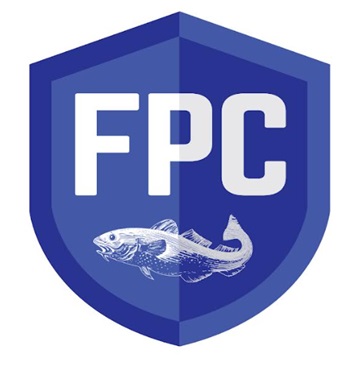 The Fisheries Protective Co-operative (FPC) welcomes outside buyers interested in purchasing fish from the province’s inshore fleet and invites such companies to contact the co-op to line up supply. “Give us a call,” says Ryan Cleary, spokesman for the FPC’s interim board. “The more competition the merrier to deliver the best possible price to our enterprise owners and break the power of the cartel.” On March 15th, following demonstrations outside Confederation Building in St. John’s, the provincial government initiated an application process for outside buyers, starting with the soon-to-be opened snow crab fishery. “Government policy, which to this point has resulted in the absence of free and open competition, is being reversed as a result of last week’s agreement with the protest movement,” says Merv Wiseman, who also sits on the FPC’s interim board. more, >>click to read<< 18:33
The Fisheries Protective Co-operative (FPC) welcomes outside buyers interested in purchasing fish from the province’s inshore fleet and invites such companies to contact the co-op to line up supply. “Give us a call,” says Ryan Cleary, spokesman for the FPC’s interim board. “The more competition the merrier to deliver the best possible price to our enterprise owners and break the power of the cartel.” On March 15th, following demonstrations outside Confederation Building in St. John’s, the provincial government initiated an application process for outside buyers, starting with the soon-to-be opened snow crab fishery. “Government policy, which to this point has resulted in the absence of free and open competition, is being reversed as a result of last week’s agreement with the protest movement,” says Merv Wiseman, who also sits on the FPC’s interim board. more, >>click to read<< 18:33
Fisheries protests give rise to a new John Efford — but what’s next for the unofficial leader?
 Until this month, the general public would have associated Efford’s name with his late father — the former fisheries minister who was a firebrand in his own right. But here was the younger Efford, a fisherman from Port de Grave, standing in the back of a pickup truck with a group of followers gathered in front of him. He had led them through two days of intense protests outside the house of government, and now he was the one holding the megaphone — not Fish, Food and Allied Workers union president Greg Pretty, nor FFAW treasury-secretary Jason Spingle. “Thank Jesus we’ve finally got some leadership!” a fisherman yelled from the crowd. “Isn’t it about time?” Efford quipped, garnering cheers. photos, video, more, >>click to read<< 06:16
Until this month, the general public would have associated Efford’s name with his late father — the former fisheries minister who was a firebrand in his own right. But here was the younger Efford, a fisherman from Port de Grave, standing in the back of a pickup truck with a group of followers gathered in front of him. He had led them through two days of intense protests outside the house of government, and now he was the one holding the megaphone — not Fish, Food and Allied Workers union president Greg Pretty, nor FFAW treasury-secretary Jason Spingle. “Thank Jesus we’ve finally got some leadership!” a fisherman yelled from the crowd. “Isn’t it about time?” Efford quipped, garnering cheers. photos, video, more, >>click to read<< 06:16

“We got ‘er done” – Fish harvesters reach deal with N.L. government to allow catch to be sold to outside buyers
John Efford Jr. fought back tears as he announced the news to hundreds of fish harvesters standing before him — they’d struck a deal with the Newfoundland and Labrador government to end days of protests. According to Efford — the de facto protest leader — and members of the fisheries union, the provincial government has agreed to let fish harvesters sell their catch to buyers from outside the province, regardless of species. They also said they have commitments on moving caps on processing to promote competition within the industry. “We got ‘er done,” Efford told reporters afterward. “Free enterprise for every species.” more, >>click o read<< 13:22
N.L. protest cause rooted in price-setting systems for fishers and processors
 The protest that erupted Wednesday outside the legislature in Newfoundland and Labrador has its roots in a complex, years-long struggle between independent fish harvesters and processors over the price-setting system, industry observers say. Sean Cadigan, a professor of history at Memorial University, said in an interview Thursday that one underlying factor in the tensions is the plunge in prices for snow crab, the province’s most valuable seafood export. From highs of over seven dollars per pound during the pandemic, the price fell to about two dollars per pound last year, creating hardships for harvesters at a time harvesters’ expenses are rising. He said that has combined with long-standing suspicions that harvesters have toward the small group of companies that dominate fish processing in the province. more, >>click to read<< 07:40
The protest that erupted Wednesday outside the legislature in Newfoundland and Labrador has its roots in a complex, years-long struggle between independent fish harvesters and processors over the price-setting system, industry observers say. Sean Cadigan, a professor of history at Memorial University, said in an interview Thursday that one underlying factor in the tensions is the plunge in prices for snow crab, the province’s most valuable seafood export. From highs of over seven dollars per pound during the pandemic, the price fell to about two dollars per pound last year, creating hardships for harvesters at a time harvesters’ expenses are rising. He said that has combined with long-standing suspicions that harvesters have toward the small group of companies that dominate fish processing in the province. more, >>click to read<< 07:40
Snow crab price talks have broken off, FFAW says
 Protest leader John Efford Jr. grabbed a megaphone Thursday to told the crowd that negotiations for a new crab price-setting formula had broken off ahead of the upcoming season. “There’s no agreement to be made,” he told the cheering crowd. “And how can you make an agreement when you’re trying to make an agreement with a colluded cartel that has the support of the government?” While the price-setting process has been controversial in the past, it hasn’t been at the core of the protests outside the province’s legislature this week. The Fish, Food & Allied Workers union and the Association of Seafood Processors have been working with the provincial government to establish a new formula to determine the price. more, >>click to read<< 17:12
Protest leader John Efford Jr. grabbed a megaphone Thursday to told the crowd that negotiations for a new crab price-setting formula had broken off ahead of the upcoming season. “There’s no agreement to be made,” he told the cheering crowd. “And how can you make an agreement when you’re trying to make an agreement with a colluded cartel that has the support of the government?” While the price-setting process has been controversial in the past, it hasn’t been at the core of the protests outside the province’s legislature this week. The Fish, Food & Allied Workers union and the Association of Seafood Processors have been working with the provincial government to establish a new formula to determine the price. more, >>click to read<< 17:12
Police don riot gear as Furey’s Liberals make 2nd attempt at budget amid protests
 It’s deja vu at Confederation Building in St. John’s on Thursday morning, as police and protesters have shown up in large numbers ahead of the Newfoundland and Labrador government’s plans to introduce the 2024 budget. By 6 a.m. NT, dozens of Royal Newfoundland Constabulary officers — some in riot gear — were standing guard in front of the main entrances to the building and a growing number of fish harvesters were arriving on scene. Police were seen having a cordial conversation with protest leaders, urging them to avoid a repeat of Wednesday’s raucous events — particularly with a court-ordered injunction now in place that prohibits protesters from blocking safe access to Confederation Building, which is both home to the legislature and the main government complex. Protest leader John Efford Jr. addressed the crowd a few minutes later. Photos, Video, more, >>click to read<< 06:24
It’s deja vu at Confederation Building in St. John’s on Thursday morning, as police and protesters have shown up in large numbers ahead of the Newfoundland and Labrador government’s plans to introduce the 2024 budget. By 6 a.m. NT, dozens of Royal Newfoundland Constabulary officers — some in riot gear — were standing guard in front of the main entrances to the building and a growing number of fish harvesters were arriving on scene. Police were seen having a cordial conversation with protest leaders, urging them to avoid a repeat of Wednesday’s raucous events — particularly with a court-ordered injunction now in place that prohibits protesters from blocking safe access to Confederation Building, which is both home to the legislature and the main government complex. Protest leader John Efford Jr. addressed the crowd a few minutes later. Photos, Video, more, >>click to read<< 06:24
N.L. government seeks injunction against fishermen amid tense protest at Confederation Building
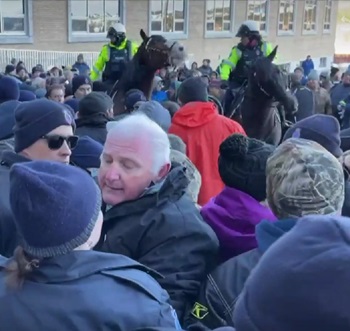 The Newfoundland and Labrador government has gone to the Supreme Court to seek an injunction against fish harvesters who swarmed Confederation Building on Wednesday as part of an ongoing protest over fishery regulations that has led to the postponement of the provincial budget. The government announced the postponement after protesters blocked entrances to the building, refused to let government workers inside and had physical confrontations with police officers and horses. A protester complaining of leg pain and a Royal Newfoundland Constabulary officer have been taken from the scene in an ambulance. Protest organizer John Efford Jr. called the budget cancellation historic.”And I have a feeling it may be cancelled again tomorrow, the next business day and the next business day until we get what ? Free enterprise,” he said. Video’s, Photos, more, >>click to read<< 10:53
The Newfoundland and Labrador government has gone to the Supreme Court to seek an injunction against fish harvesters who swarmed Confederation Building on Wednesday as part of an ongoing protest over fishery regulations that has led to the postponement of the provincial budget. The government announced the postponement after protesters blocked entrances to the building, refused to let government workers inside and had physical confrontations with police officers and horses. A protester complaining of leg pain and a Royal Newfoundland Constabulary officer have been taken from the scene in an ambulance. Protest organizer John Efford Jr. called the budget cancellation historic.”And I have a feeling it may be cancelled again tomorrow, the next business day and the next business day until we get what ? Free enterprise,” he said. Video’s, Photos, more, >>click to read<< 10:53
Fisheries minister commits to lifting processing caps, looking for outside buyers ahead of 2024 crab season
 Fisheries Minister Elvis Loveless says he’s willing to meet some of the demands tabled by fish harvesters and their union amid continued protests. In a letter written to the Fish, Food and Allied Workers union on Tuesday — and on the eve of announcing the provincial budget for 2024 — Loveless told union president Greg Pretty the province is committed to raising processing capacity “in the primary processing sector” prior to the start of the 2024 fishery. However, the extent of the increase will be informed, in part, by the total allowable catch that is yet to be announced by the federal fisheries minister. Further, Loveless said his department will issue an expression of interest for outside buyers for the 2024 snow crab fishery on Tuesday. more, >>click to read<< 15:44
Fisheries Minister Elvis Loveless says he’s willing to meet some of the demands tabled by fish harvesters and their union amid continued protests. In a letter written to the Fish, Food and Allied Workers union on Tuesday — and on the eve of announcing the provincial budget for 2024 — Loveless told union president Greg Pretty the province is committed to raising processing capacity “in the primary processing sector” prior to the start of the 2024 fishery. However, the extent of the increase will be informed, in part, by the total allowable catch that is yet to be announced by the federal fisheries minister. Further, Loveless said his department will issue an expression of interest for outside buyers for the 2024 snow crab fishery on Tuesday. more, >>click to read<< 15:44
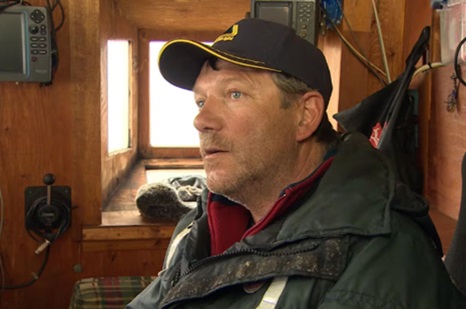
An appeal for seal: Supporters say it’s time to review bans on ‘sustainable’ industry
Fisheries managers allow some 400,000 harp seals to be harvested annually, but the allowable catch hasn’t been taken in the past 15 years. These days, hunters only take about 40,000 seals because of international bans that have dramatically reduced access to markets. The United States has had a ban on seal products since 1972, the European Union banned seal products in 2009, and the Chinese market also has restrictions. But while the sealing industry struggles to stay alive, it’s a way of life that continues. Eldred Woodford, president of the Canadian Sealers Association, has been eating seal his entire life. He’s frustrated that more people aren’t seeing the value of an abundant food source just off the coast. “It’s a waste of a resource. That’s what it is,” he said. more, >>click to read<< 10:03
FFAW pleads with fisheries minister to open market, arguing harvest too much for local processors
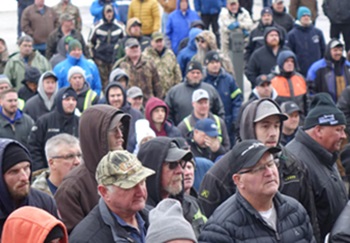 The Fish, Food & Allied Workers union (FFAW) formally urged Fisheries Minister Elvis Loveless to open the fisheries to outside buyers in a letter on Friday, following a week of intensifying protests from harvesters. The letter is a response to Loveless’s own letter from Thursday evening, in which he requested a plan from the union that would guarantee the jobs of all FFAW members, harvesters, and fish plant workers if the market opens. “Any decision to allow outside buyers must consider the impacts on all partners in the seafood industry, and particularly on fish plant workers,” Loveless says in his letter, adding that if such a plan is presented by the FFAW, the government will consider opening the market to outside buyers for snow crab. more, >>click to read<< 19:38
The Fish, Food & Allied Workers union (FFAW) formally urged Fisheries Minister Elvis Loveless to open the fisheries to outside buyers in a letter on Friday, following a week of intensifying protests from harvesters. The letter is a response to Loveless’s own letter from Thursday evening, in which he requested a plan from the union that would guarantee the jobs of all FFAW members, harvesters, and fish plant workers if the market opens. “Any decision to allow outside buyers must consider the impacts on all partners in the seafood industry, and particularly on fish plant workers,” Loveless says in his letter, adding that if such a plan is presented by the FFAW, the government will consider opening the market to outside buyers for snow crab. more, >>click to read<< 19:38






